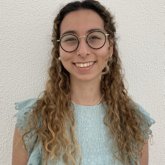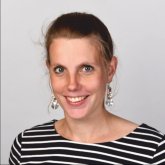We are seeking a talented postdoctoral researcher to engineer pore-forming toxins (PFTs) for targeted cancer therapeutics and biosensor development.
You will work on developing and optimizing pore-forming toxins (PFTs) for selective cancer cell targeting. This will involve expressing and purifying PFTs, as well as performing (computational) protein engineering and directed evolution to create PFTs that target cancer cells with high selectivity.
Since PFTs can also function as biosensing elements (as biological nanopores) you will also utilize these PFTs in artificial lipid bilayers for sensing applications and collaborate on the development of a microfluidic platform.
There will be room for you to contribute to shaping the specific approaches taken in this project, allowing you to tailor aspects to your own research interests, where feasible.
You will have access to state-of-the-art facilities and will work in a highly collaborative and supportive research environment, with many opportunities for interdisciplinary collaboration.
Information and application
Are you interested in this position?
Please send your application via the 'Apply now' button below before 15-January-2024 and include:
- A cover letter explaining your specific interest and outlining your prior experience on the research topic
- A Curriculum Vitae,
- A list of publications
- Contact details of two references.
Job interviews will be held at the end of January 2025.
About the department
At BIOS Lab on a chip group we aim to bridge physics, biology, and chemistry with the power of Lab on a chip technology. As such we are an interdisciplinary group, part of the MESA+ Institute for Nanotechnology and Technical Medical Centre.
About the organisation
The faculty of Electrical Engineering, Mathematics and Computer Science (EEMCS) uses mathematics, electronics and computer technology to contribute to the development of Information and Communication Technology (ICT). With ICT present in almost every device and product we use nowadays, we embrace our role as contributors to a broad range of societal activities and as pioneers of tomorrow's digital society. As part of a people-first tech university that aims to shape society, individuals and connections, our faculty works together intensively with industrial partners and researchers in the Netherlands and abroad, and conducts extensive research for external commissioning parties and funders. Our research has a high profile both in the Netherlands and internationally. It has been accommodated in three multidisciplinary UT research institutes: Mesa+ Institute, TechMed Centre and Digital Society Institute.





